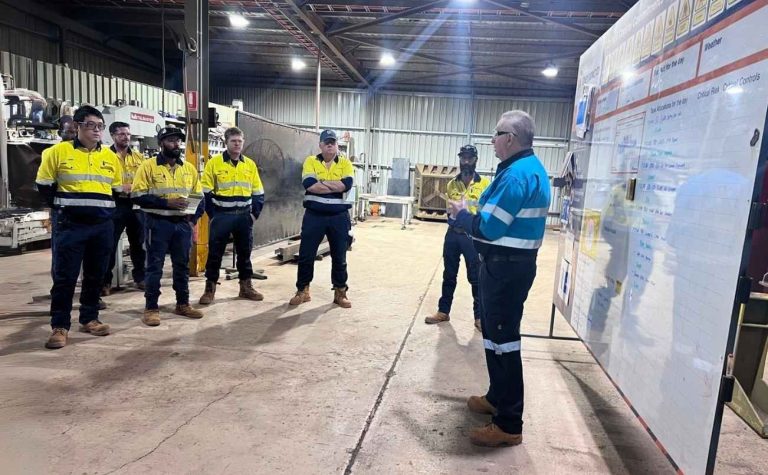We live in rapidly changing times. Manufacturing is all but dead, primary production is declining, meanwhile technology is increasing its place in our daily lives. So what does this mean for you? In this article we share important Australian Employment Trends, and recommend some of the best RPL qualifications for you.
The biggest long-term employment trend is a shift towards professional and service jobs. And this means an increasing demand for tertiary or vocational education and training qualifications. (Source: jobs.gov.au)
Two of the biggest growth sectors in employment are projected to be:
In short, if you want to stay competitive in the job market, you need to evidence your skills and experience through qualifications.
This may mean taking some time out to study in order to get the qualification you need to achieve your desired career goals.
But in many cases you already have the skills and knowledge, you just need to prove it to future employers…
That’s where recognition of prior learning (RPL) can be extremely beneficial.
RPL is the process of converting your skills, knowledge and experience into nationally recognised qualifications.
Find out what you’re eligible for
Which means you don’t need to spend time, money and effort studying something you already know.
So what are the best RPL qualifications for you?
This depends on two main factors:
- Your skills, knowledge and experience
- Your career goals
Our Top Five RPL Qualifications for 2018 – 2019
We have selected these RPL qualifications for a number of reasons:
- They have been our most popular qualifications for 2018.
- They are all relevant to both of the key growth sectors.
- Another big employment trend as we move into 2019 is employers looking for applicants with a range of skills. They want to see a spread of business, technical and specialist skills, which means many jobs will require you to have more than one qualification. This collection gives you that range.
These qualifications also have universal relevance across all industries, including private sector business, public sector administration, construction, defence, mining, police and expats.
1. BSB51918 Diploma of Leadership and Management
The BSB51918 Diploma of Leadership and Management shows employers that you have business skills.
It demonstrates that you can combine the two vital aspects of management: effective team leadership and organisational planning for success.
Employers are looking for the strengths in their organisations that come from your skills in order and leadership.
This leadership/management qualification focuses on your ability to head up a team. It demonstrates that you have skills and knowledge in both human resources and management operations and can balance the need for business growth with the tasks of managing employees and their performance.
It is also a qualification that has credibility in both the public and private sectors.
Possible career outcomes:
- Project Manager / Supervisor
- Operations Manager
- Business Manager
- Production Supervisor
- Health and Safety Manager
2. BSB51315 Diploma of Work Health and Safety
Workplace health and safety (WHS) is a fundamental consideration in modern organisations and shows employers that you have technical skills.
Professionals in this field are always required because workplaces must comply to relevant legislation – in both the private and public sector.
Pay scale trends show that WHS roles are often at the higher end of the pay spectrum.
This qualification assures employers for jobs that require the coordination and maintenance of WHS programs in their organisation, that you are already experienced and knowledgeable in these areas, with a comprehensive understanding of WHS and its applications.
You can see by the sorts of roles that lead to WHS positions that there is often a link to managing WHS outcomes, so combining a work health safety qualification with leadership/management makes sense.
Possible career outcomes:
- Work Health and Safety / OHS Officer (WHSO)
- WHS/HSE Advisor
- Work Health and Safety Manager
- Maintenance Coordinator
3. CPP50611 Diploma of Security and Risk Management
The CPP50611 Diploma of Security and Risk Management is the highest qualification in this sector and gives employers evidence of specialist skills.
With this one under your belt, you can demonstrate to employers that you have substantial experience acting at a leadership level in higher risk security environments, conducting comprehensive security assessments and developing high level emergency management response planning.
Find out what you’re eligible for
This is an ideal qualification for those personnel who want to transfer their experience into a security and risk management focused role.
At the Diploma level, you have experience in leading a team in this environment and you’ll be looking at jobs that have leadership responsibilities.
Possible career outcomes:
- International High-Risk Security Consultant
- Offshore and Domestic Security and Risk Advisor
- Personal Security Detail (PSD) Team Leader
- Protective Services Officer
4. BSB51415 Diploma of Project Management
The BSB51415 Diploma of Project Management is another qualification that shows employers you have specialist skills.
This one demonstrates you have project leadership and management skills and knowledge. It is relevant to both growth sectors as it is central to both construction and the professional service industry.
At the diploma level you have managed projects in varied contexts and industries.
Possible career outcomes:
- Construction Manager
- Project Manager
- Public Administration Manager
- Safety Manager
Sources:
https://joboutlook.gov.au/FutureOfWork.aspx
https://cica.org.au/wp-content/uploads/Employment-Outlook-to-November-2019.pdf
https://www.jobs.gov.au/newsroom/projections-show-widespread-growth-across-employment-industries-over-next-five-years
https://www.jobs.gov.au/newsroom/future-jobs-growth-favour-skilled-workers
https://careers.unimelb.edu.au/students/jobs-and-opportunities/approaching-the-job-market/australian-employment-trends
https://insightsresources.seek.com.au/employment-trends
https://insightsresources.seek.com.au/revealed-top-4-emerging-workforce-trends








